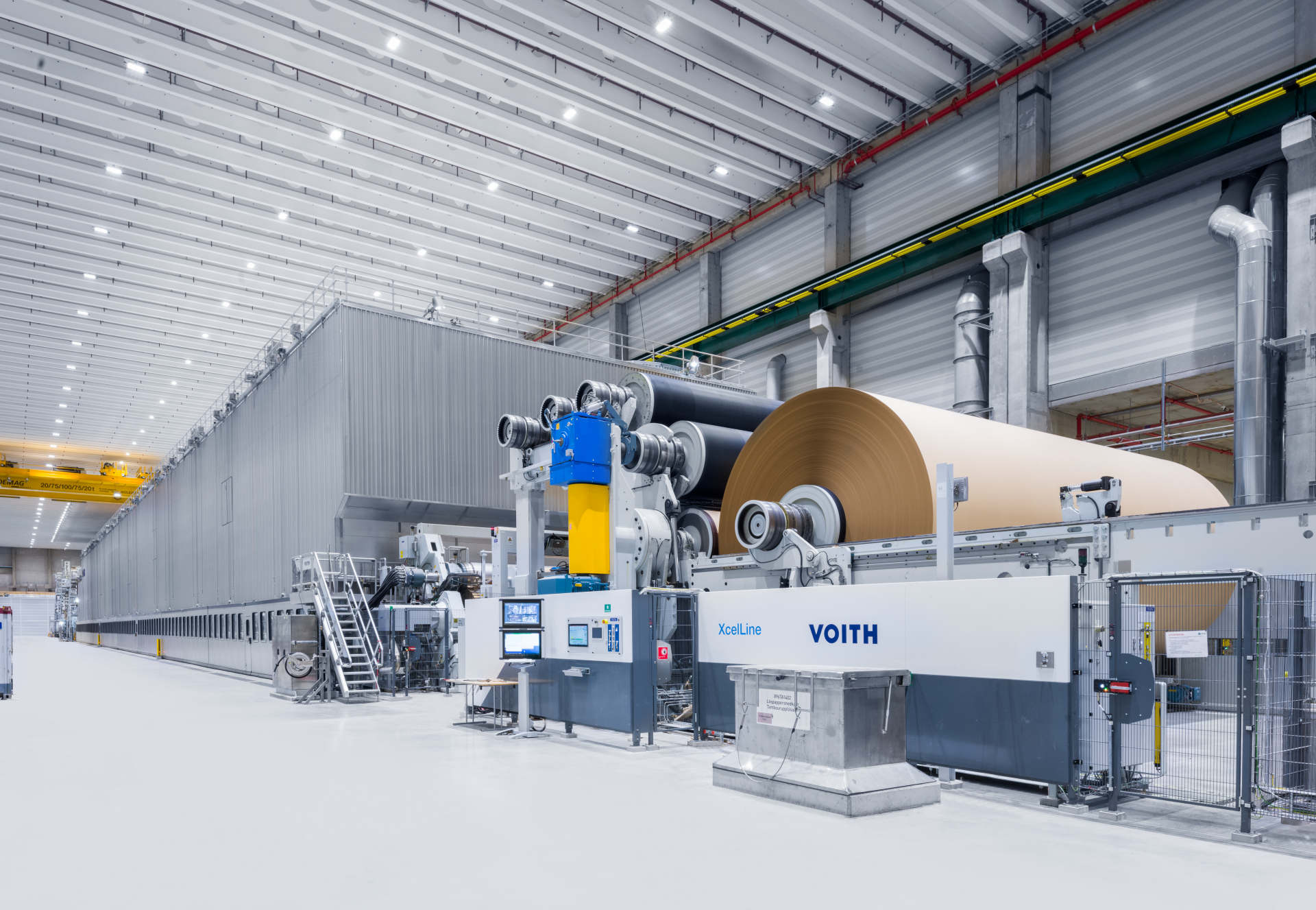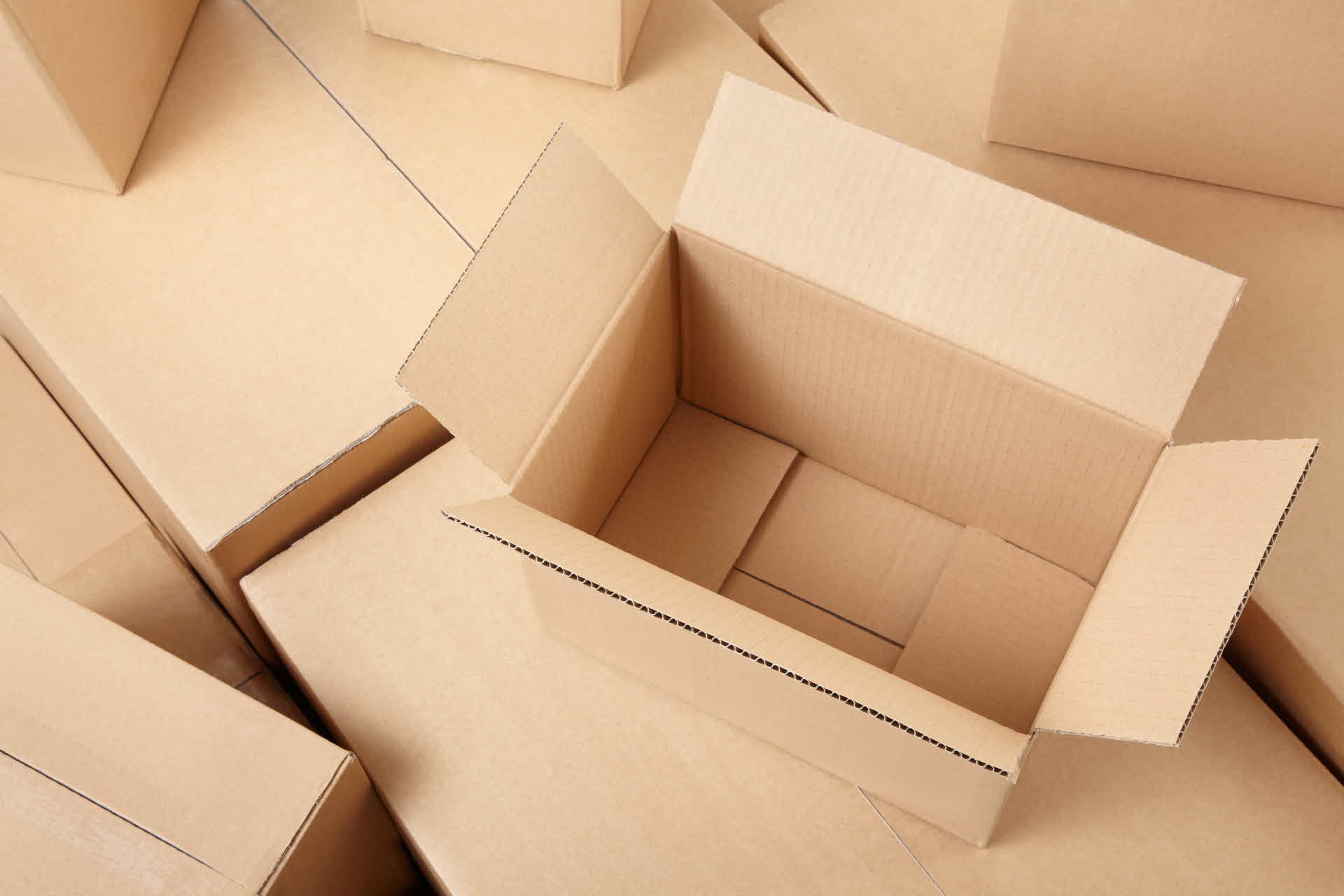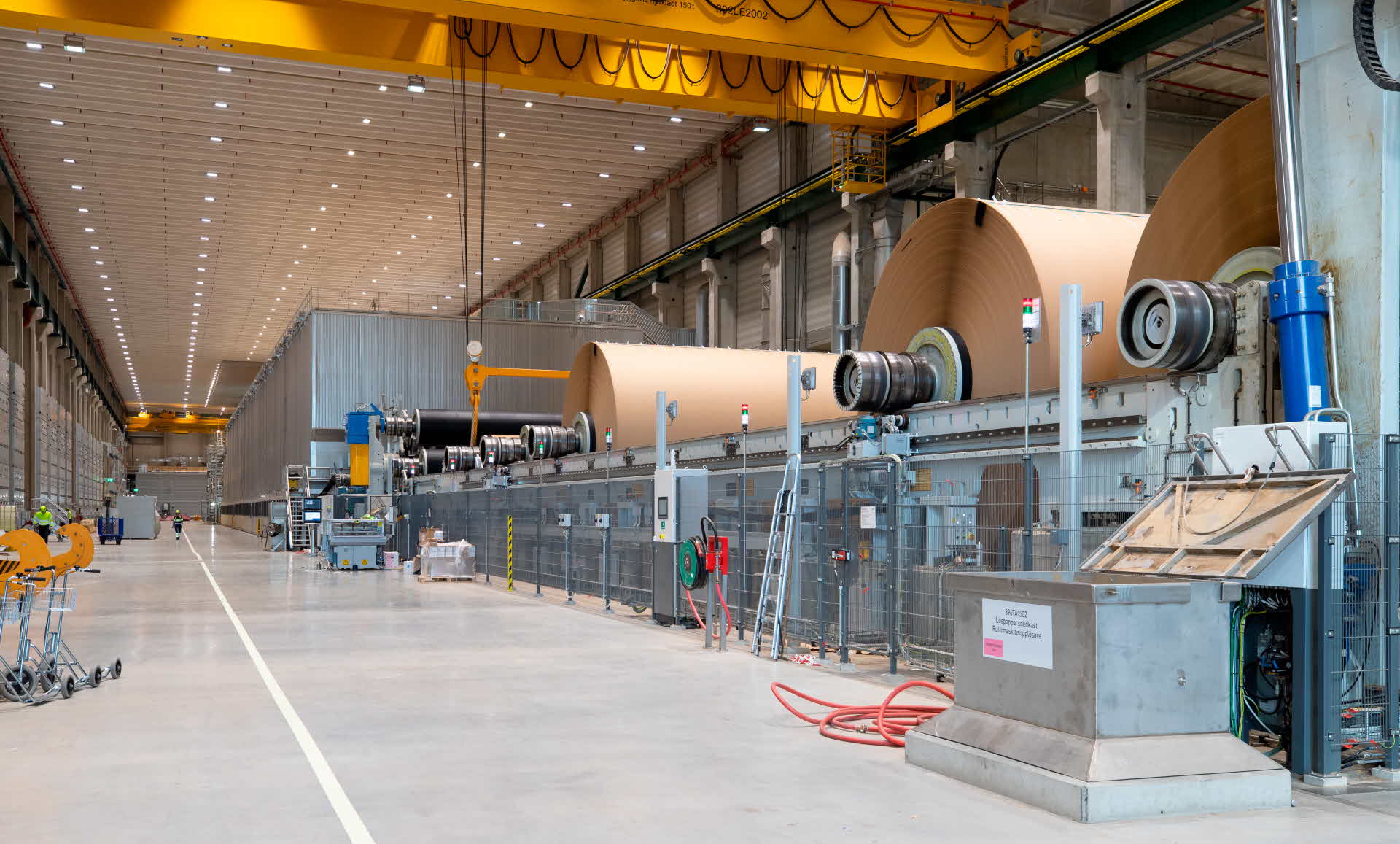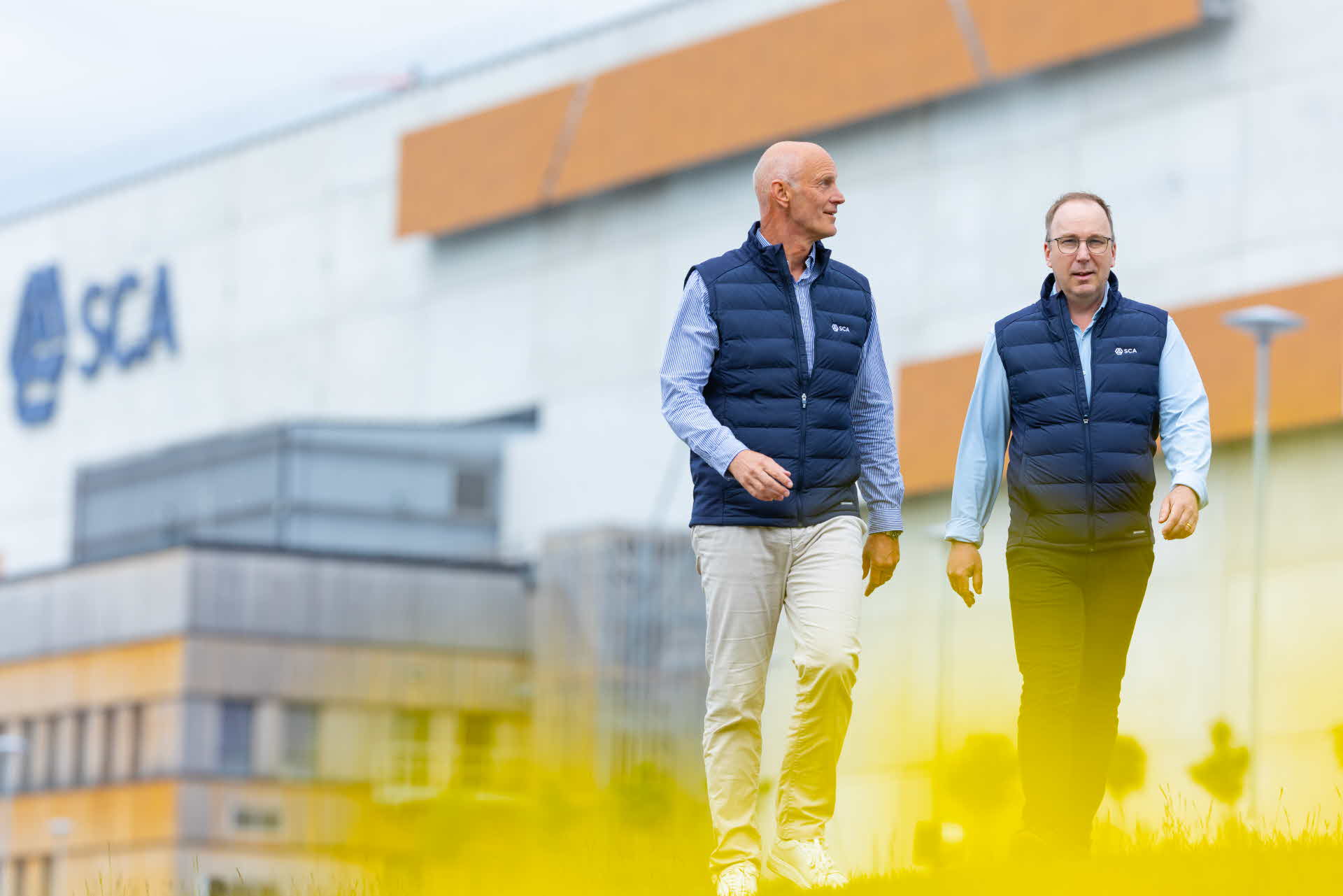
Back on track – Hard work delivers result at the Obbola mill
- News
- Packaging paper
With one of the world’s most advanced kraftliner machines, SCA’s Obbola mill, located just outside Umeå in northern Sweden, has taken a significant step into the future. The newly upgraded mill is now delivering on its promise of increased capacity, reliability, and leading sustainability. Take a closer look behind the scenes of this ambitious project and what it means for SCA and society at large in a conversation with Mikael Frölander, VP Marketing and Sales, and Gustaf Nygren, Mill Manager at SCA Obbola.
An Investment for the Future of Renewable Packaging
Can you briefly recap why SCA made this investment, where we stand, and what it ultimately means for customers?
Mikael Frölander: Of course. The goal was clear from the beginning: to meet the growing demand for renewable packaging materials based on fresh Nordic fibers. Our customers were looking for a sustainable and robust liner that works smoothly in their machines, enables high-quality prints, and offers one of the market’s lowest carbon footprints – and that’s exactly what we are delivering.
Challenges During the Ramp-Up Phase
Gustaf, the ramp-up phase took longer than expected. What were the major challenges?
Gustaf Nygren: It’s a question I often get. We were a bit too optimistic early on, and we are grateful for the patience shown by our customers. Getting such a complex system of equipment to work seamlessly together requires time and dedication – this is far from a ‘plug and play’ scenario you might expect when upgrading a mobile phone.
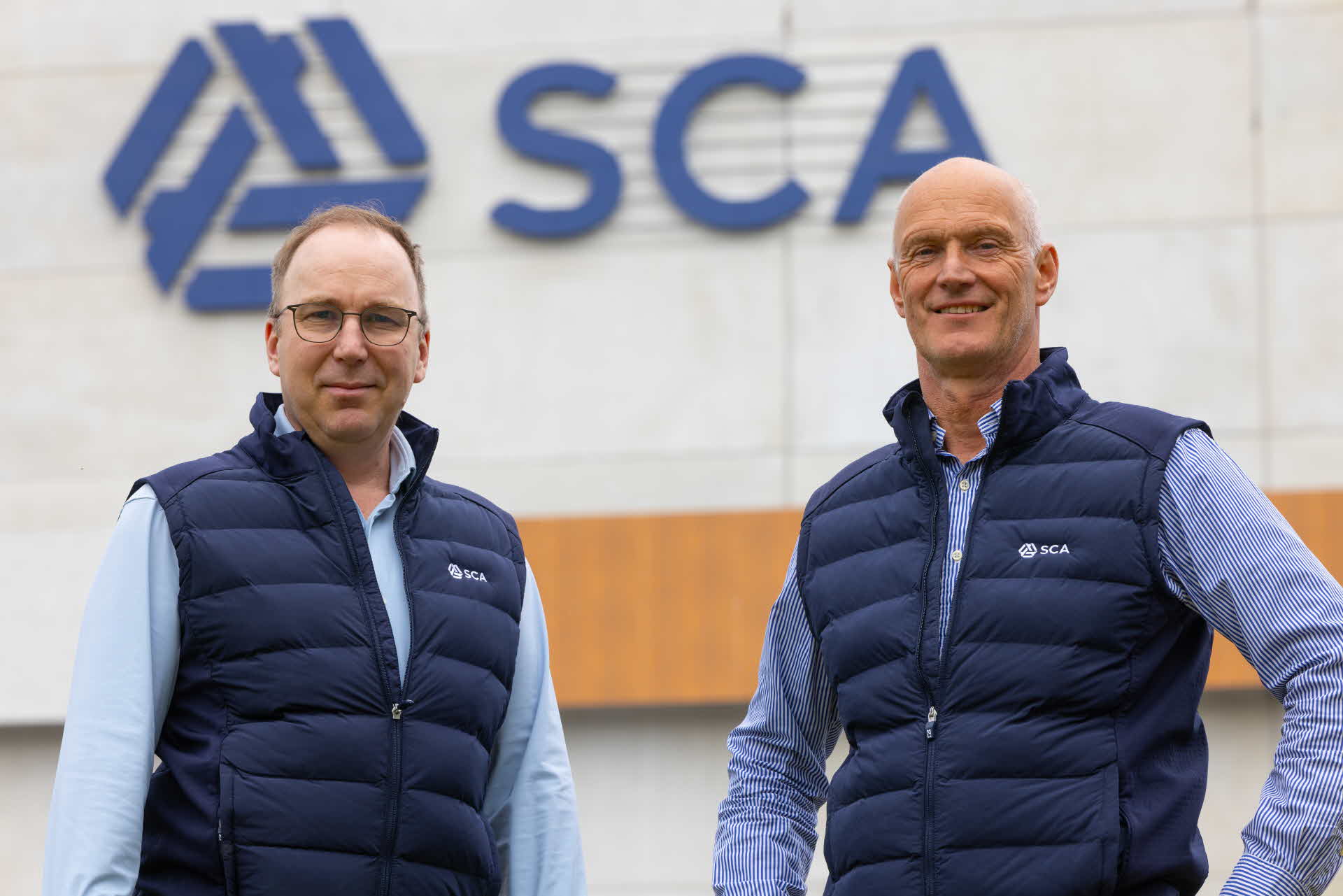
Initially, we faced challenges with quality stability, which demanded extensive fine-tuning. What’s important to highlight is that it wasn’t a single factor causing the delays but multiple aspects that needed optimization – from steam and water systems to digital infrastructure and logistics chains. Today, we are not only meeting but often exceeding our ramp-up plans.
Mikael Frölander: Exactly. The old PM1 machine dated back to 1974, so this upgrade was long overdue. We have increased capacity from 450,000 to 725,000 tonnes while integrating the best and proven technologies to deliver high-quality kraftliner.
Leading Technology with Customer and Sustainability Benefits
Mikael, how do these new advancements translate into benefits for stakeholders and society?
Mikael Frölander: Let me give you two examples:
Firstly, our three headboxes allow us to use the fiber mix across three layers in many different ways, enabling us to develop customized solutions for various needs.
Secondly, our three advanced shoe presses – which are unusual for kraftliner production – significantly improve the surface smoothness of our products. Customers immediately notice the difference during printing.
Gustaf Nygren: And, of course, we cannot overlook the sustainability gains. The new machine reduces energy consumption by up to 40 kWh per tonne, while our biofuel-fired furnace saves 20,000 tonnes of carbon dioxide annually compared to fossil-oil-fired units. These are just a few of the many climate-friendly advancements, all of which add value to both customers and society.
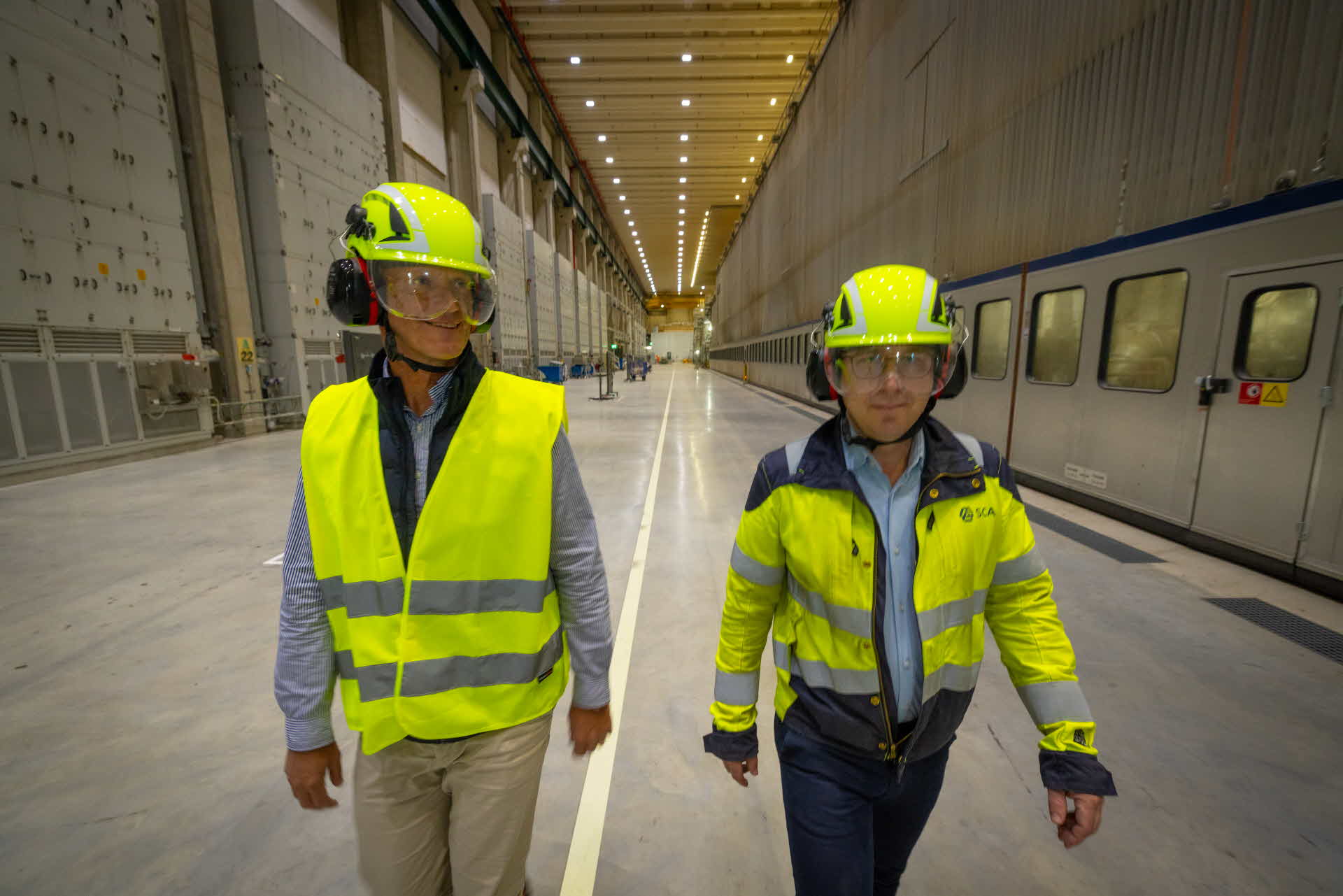
The Future is Being Built Here in Obbola
What has inspired you the most throughout this process?
Gustaf Nygren: Operating the world's largest and most advanced kraftliner machine – here in my hometown, Umeå – is incredibly rewarding. The technology and systems we are using are at the very forefront of the industry, and it has been an amazing journey so far.
Mikael Frölander: For me personally, the most inspiring part has been the fantastic teamwork – both internally and with our customers. Our staff has listened and worked hard to meet the demands, and our customers have been with us every step of the way, which has made delivering on all fronts a reality.
Built for the Long-Term Future
What does the road ahead look like?
Mikael Frölander: Today we are operating at full scale, with precision and a sustainability profile that aligns with where our customers – and the industry – are heading. Looking forward, I am confident that this is just the beginning of the next generation of reliable, renewable packaging solutions – together with our customers, and with a positive impact on both the local community and global climate initiatives.
The transformation taking place at SCA Obbola represents not only technical success but also an important step towards a more sustainable future. In this way, the mill is not just a symbol of corporate development but also a source of pride for the region and the people who work here. The future looks bright for SCA, being built here, every day.
